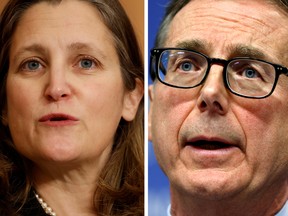The recent throne speech has sparked a heated debate about the Canadian government’s plan to make tech giants pay their share in taxes and content creation. The speech, which outlined the government’s priorities for the upcoming year, included a statement that has been hailed as "most explicit" yet on this issue.
A Gift from the Canadian Government
Foreign digital platforms have gained popularity and generated revenue in Canada without having to pay taxes like Canadian companies or meet similar obligations to create content here. Barry Appleton, a trade specialist and managing partner at Appleton & Associates International Lawyers LP, referred to this combination as "a large gift" from the Canadian government.
"This could be a very good day for Canadian creators — who have been unfairly attacked by foreign competitors and COVID-19," Appleton said following the speech. However, he also emphasized that this plan is not just about getting money from web giants but also about protecting content creators and innovators in Canada.
A Plan That May Prove "Inconsistent" with Trade Obligations
However, Michael Geist, a law professor at the University of Ottawa and Canada Research Chair in internet and e-commerce law, expressed concerns that the government’s plan may prove "inconsistent" with Canada’s trade obligations if the aim is merely to "get money from web giants." He also noted that the throne speech seemed to ignore Ottawa’s previous commitments to a digital agenda with a focus on privacy reform and intellectual property.
"The government seems to view the Internet as an ATM to cross-subsidize the culture sector," Geist said. He argued that if the government wants to use taxes to support the cultural sector, it can do so by placing allocations into the budget so that spending is transparent and Canadians can see the trade-offs.
A Plan That May Backfire
Aaron Wudrick, federal director of the Canadian Taxpayers Federation, expressed concerns that any plan to use taxes to shore up domestic content producers "is almost certain to backfire." He cited France’s attempt to implement similar measures as an example. When France tried this approach, they were hit with retaliatory measures by the United States (which is home to almost all of the targets of such taxes), and the costs were simply passed along to consumers.
Wudrick urged the Canadian government to take great care not to conflate "fair sharing" of revenue with forcing consumers and taxpayers to subsidize content they don’t want.
A Heated Debate Ahead
The throne speech has sparked a heated debate about the merits of making tech giants pay their share in taxes and content creation. While some see this as an opportunity for Canadian creators, others are concerned that it may lead to inconsistent trade obligations or even backfire by passing costs along to consumers.
As the debate continues, one thing is clear: the Canadian government’s plan has significant implications for both the tech industry and the country’s trade relationships.
A Possible Way Forward
The throne speech seems to suggest that the government wants to use taxes to support the cultural sector. However, this approach raises questions about transparency and accountability. If the government wants to implement such a plan, it should do so by placing allocations into the budget so that spending is transparent and Canadians can see the trade-offs.
Ultimately, the success of this plan will depend on its implementation and whether it achieves its stated goals without causing unintended consequences.



